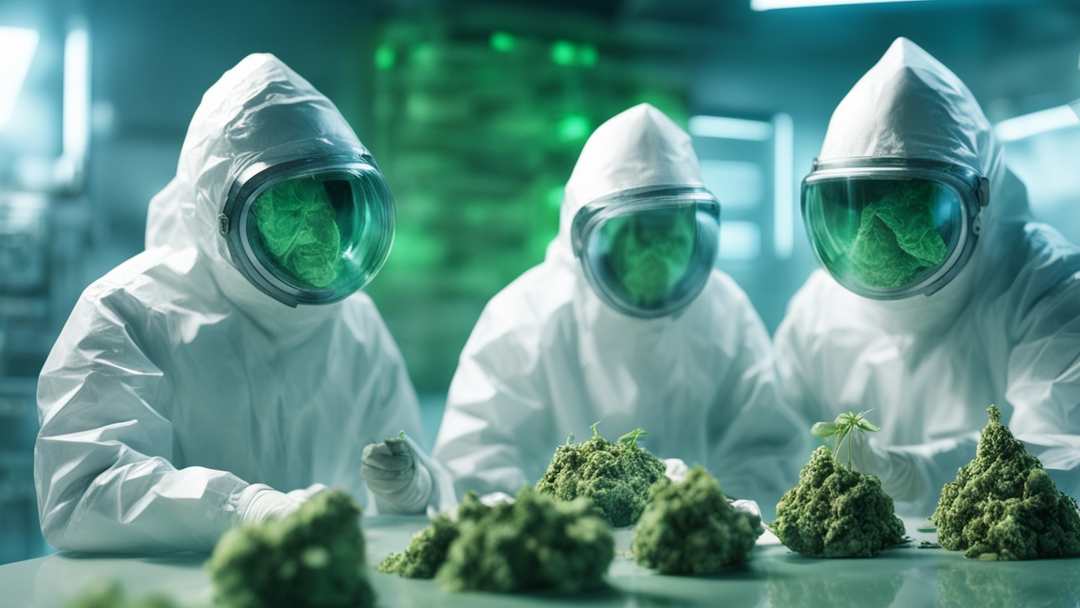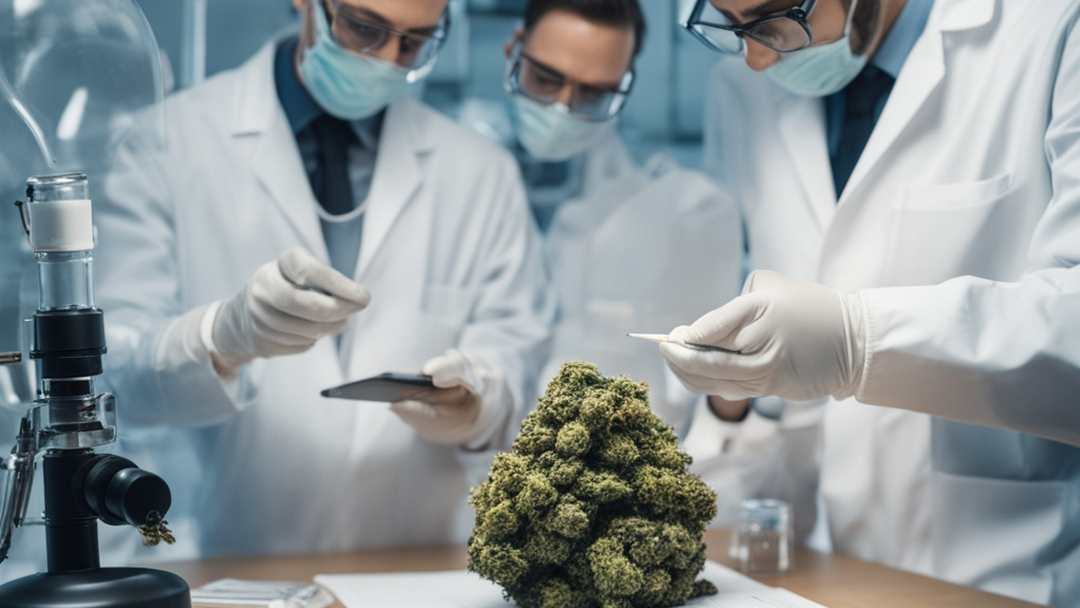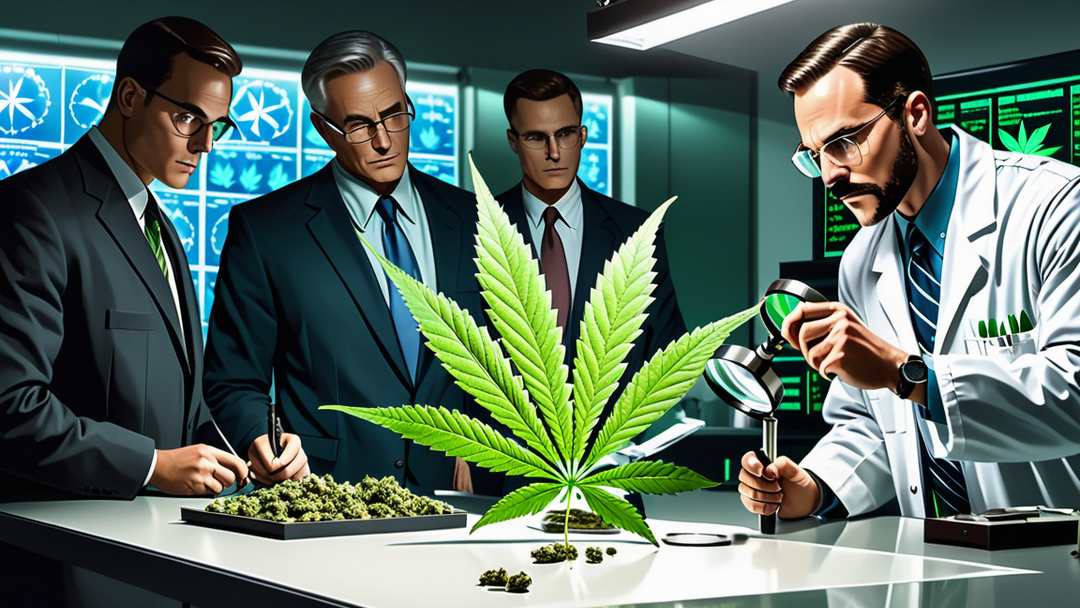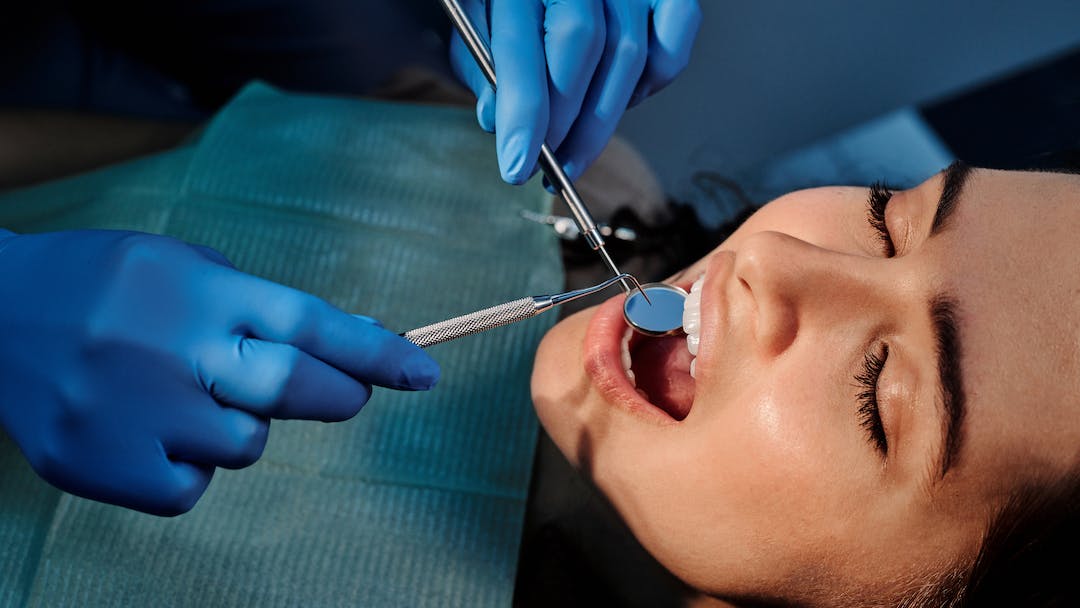A bill enacted into California law in 2024 prohibits employers from discriminating against individuals based on their off-duty and off-site use of cannabis, as it relates to their employment.
The bill provides an extra level of safeguard for marijuana users in California, but does it suggest a full prohibition on employers conducting marijuana tests in the state?
Testing
The new law, Assembly Bill 2188, clearly states that employers cannot terminate employees based on the presence of cannabis in their hair, blood, or urine. Furthermore, it is now against the law for employers to inquire about an applicant’s consumption of cannabis or marijuana.
This means that individuals who have previously used marijuana cannot face penalties for their past use. Furthermore, individuals are protected from any penalties for using marijuana outside of the workplace and during non-working hours.
Affects Mental Processes
AB 2188 often mentions the “psychoactive” properties of cannabis Defined by the World Health Organization as this -> Definition <.
While the bill provides certain protections, it remains illegal to be under the influence of marijuana or bring it into the workplace.
AB 2188 mandates drug tests that specifically target impairing effects. It is crucial to note that standard marijuana tests do not identify any factors that could negatively impact an employee’s performance.
While it is widely acknowledged that employees should not arrive at a worksite while under the influence or impaired, it is important to note that most cannabis tests only indicate the presence of the nonpsychoactive cannabis metabolite.
These test results do not demonstrate any correlation with job impairment. However, it is crucial to maintain a responsible and safe working environment by prioritizing employee well-being and adhering to workplace policies regarding substance use and impairment.
However, it should be noted that there are additional types of tests that are allowed and these tests do not assess the existence of nonpsychoactive cannabis metabolites.
The purpose of drug tests is to identify potentially impaired employees. These tests include impairment tests that measure an individual employee’s performance against their own baseline, as well as tests that detect the presence of THC in an individual’s bodily fluids, as indicated by the bill.
Exemption
This law does not apply to employers in the building and construction trades or employees hired for “positions that require a federal government background investigation.”
Additionally, state and federal laws remain that test applicants and employees for controlled substances.
Have your rights been violated?
Have your driving priviledges been revoked?
Has your professional license been suspended?
Have you been charged with a crime?
Call our office to see if we can help
Komorn Law 248-357-2550
Here’s the California Law below and the link here
Assembly Bill No. 2188
CHAPTER 392
An act to add Section 12954 to the Government Code, relating to employment.
[ Approved by Governor September 18, 2022. Filed with Secretary of State September 18, 2022. ]
LEGISLATIVE COUNSEL’S DIGEST
AB 2188, Quirk. Discrimination in employment: use of cannabis.
Existing law, the California Fair Employment and Housing Act, protects and safeguards the right and opportunity of all persons to seek, obtain, and hold employment without discrimination, abridgment, or harassment on account of race, religious creed, color, national origin, ancestry, physical disability, mental disability, medical condition, genetic information, marital status, sex, gender, gender identity, gender expression, age, sexual orientation, or military and veteran status. The act prohibits various forms of employment discrimination and empowers the Civil Rights Department to investigate and prosecute complaints alleging unlawful practices.
This bill, on and after January 1, 2024, would also make it unlawful for an employer to discriminate against a person in hiring, termination, or any term or condition of employment, or otherwise penalize a person, if the discrimination is based upon the person’s use of cannabis off the job and away from the workplace, except for preemployment drug screening, as specified, or upon an employer-required drug screening test that has found the person to have nonpsychoactive cannabis metabolites in their hair, blood, urine, or other bodily fluids. The bill would exempt certain applicants and employees from the bill’s provisions, including employees in the building and construction trades and applicants and employees in positions requiring a federal background investigation or clearance, as specified. The bill would specify that the bill does not preempt state or federal laws requiring applicants or employees to be tested for controlled substances as a condition of employment, receiving federal funding or federal licensing-related benefits, or entering into a federal contract.
DIGEST KEY
Vote: majority Appropriation: no Fiscal Committee: yes Local Program: no
BILL TEXT
THE “PEOPLE” OF THE STATE OF CALIFORNIA DO ENACT AS FOLLOWS:
SECTION 1.
The Legislature finds and declares both of the following:
(a) Tetrahydrocannabinol (THC) is the chemical compound in cannabis that can indicate impairment and cause psychoactive effects. After tetrahydrocannabinol is metabolized, it is stored in the body as a nonpsychoactive cannabis metabolite. These metabolites do not indicate impairment, only that an individual has consumed cannabis in the last few weeks.
(b) The intent of drug tests is to identify employees who may be impaired. While there is consensus that an employee should not arrive at a worksite high or impaired, when most tests are conducted for cannabis, the results only show the presence of the nonpsychoactive cannabis metabolite and have no correlation to impairment on the job.
(c) As science has improved, employers now have access to multiple types of tests that do not rely on the presence of nonpsychoactive cannabis metabolites. These alternative tests include impairment tests, which measure an individual employee against their own baseline performance and tests that identify the presence of THC in an individual’s bodily fluids.
SEC. 2. Section 12954 is added to the Government Code, to read:
12954. (a) It is unlawful for an employer to discriminate against a person in hiring, termination, or any term or condition of employment, or otherwise penalizing a person, if the discrimination is based upon any of the following:
(1) The person’s use of cannabis off the job and away from the workplace. This paragraph does not prohibit an employer from discriminating in hiring, or any term or condition of employment, or otherwise penalize a person based on scientifically valid preemployment drug screening conducted through methods that do not screen for nonpsychoactive cannabis metabolites.
(2) An employer-required drug screening test that has found the person to have nonpsychoactive cannabis metabolites in their hair, blood, urine, or other bodily fluids.
(b) Nothing in this section permits an employee to possess, to be impaired by, or to use, cannabis on the job, or affects the rights or obligations of an employer to maintain a drug- and alcohol-free workplace, as specified in Section 11362.45 of the Health and Safety Code, or any other rights or obligations of an employer specified by federal law or regulation.
(c) This section does not apply to an employee in the building and construction trades.
(d) This section does not apply to applicants or employees hired for positions that require a federal government background investigation or security clearance in accordance with regulations issued by the United States Department of Defense pursuant to Part 117 of Title 32 of the Code of Federal Regulations, or equivalent regulations applicable to other agencies.
(e) This section does not preempt state or federal laws requiring applicants or employees to be tested for controlled substances, including laws and regulations requiring applicants or employees to be tested, or the manner in which they are tested, as a condition of employment, receiving federal funding or federal licensing-related benefits, or entering into a federal contract.
(f) This section shall become operative on January 1, 2024.
More Posts

NY judge fines unlicensed cannabis shops $15 million
It's their corner now“This punishment should serve as a clear warning for all unlicensed cannabis stores in the state: we will enforce the law and shut down your operations,” state Attorney General Letitia James saidThe owner of seven unlicensed cannabis shops in New...

When Cannabis Businesses Are No Longer Subject to IRS 280E
IRS 280E and Cannabis BusinessesWhat is IRS Section 280E? Section 280E of the Internal Revenue Code restricts businesses from deducting typical business expenses from their gross income related to the distribution of Schedule I or II substances per the Controlled...

Vehicle Forfeiture in Canada – The Process of Taking
Thank You... and have a nice day eh!Disclaimer: We are not Attorneys in Canada. This is an article of information obtained from various sources and presented here. We can only assume they are accurate. If you ever find a reason to go to Canada and need a lawyer...we...

Boating in Michigan on Alcohol and Drugs – It’s Illegal
If it's got a motor, it's a BUIWe got lakes, we got boats, we got alcohol, we got cannabis all the fun you can possibly find on a holiday weekend in the summer. Just don't combine them all or you'll be calling us or your cousin Vinny. Operating a Boat Under the...

Alcohol, Drugs, Kayaking – It could be a problem
Can I drink alcohol and smoke cannabis if I'm canoeing or kayaking or tubing or paddleboarding or just floating around?While Michigan law doesn't explicitly forbid consuming alcohol on non-motorized vessels like canoes or kayaks, it's strongly discouraged for safety...

Michigan Workers Right to Protest – Can They Force a Change in Business Strategy?
Michigan Workers and the Right to Protest: Can They Force a Change in Business Strategy?The ever-evolving economic landscape can create friction between Michigan workers and their employers. Workers may find themselves at odds with company strategies or investments,...

THC Associated with Increase of Survival Time in Palliative Cancer
Summary from the official government website (Link Below)The Use of Tetrahydrocannabinol Is Associated with an Increase in Survival Time in Palliative Cancer Patients: A Retrospective Multicenter Cohort StudyThe study, conducted by researchers in Germany, analyzed...

Justice Department Submits Proposal to Reschedule Marijuana
Proposed Rule Seeks to Move Marijuana from Schedule I to Schedule III, Emphasizing its Currently Accepted Medical Use in Treatment in the United StatesThe Justice Department announced today that the Attorney General has initiated a formal rulemaking process to...

Bloomfield Hills Doctor Convicted of $6M Medicare Fraud Scheme
JUSTICE.GOVFor Immediate Release Office of Public AffairsA federal jury convicted a Michigan doctor today for causing the submission of over $6.3 million in fraudulent claims to Medicare for medically unnecessary orthotic braces ordered through a telemarketing...

The Legal Significance of Marijuana Reclassification
The Impact of Marijuana Reclassification on Legal LandscapeOn May 6, 2024, the DEA made a groundbreaking decision, accepting the US Department of Health and Human Services' recommendation to reclassify marijuana from Schedule I to Schedule III controlled substance....











